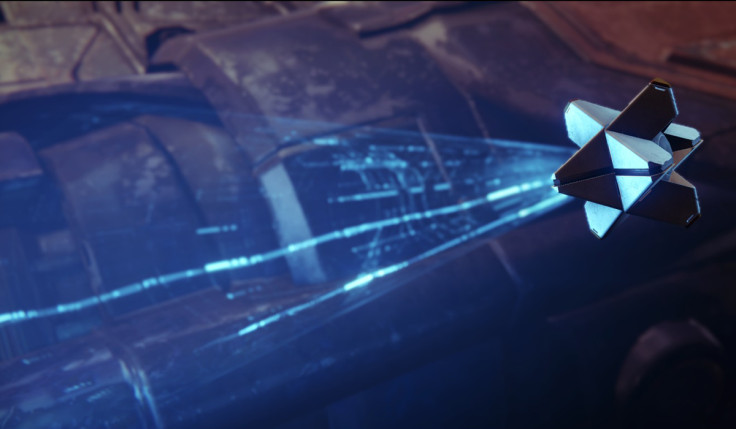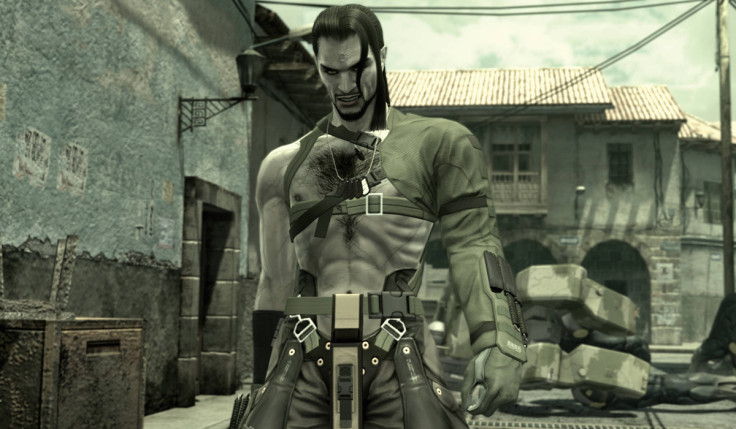Technology in video games like Destiny and Call of Duty sucks the humanity out of stories

Technology in real-life is amazing. Take things like the iPad or the jumbo jet. These are magical propositions made reality through the work of hundreds of people and by extension, decades of human progress.
Your smartphone is a product of time, struggle and sweat. As much as it seems like alchemy, that somehow these benign components have been collected together to create something incredible, technology is a very human endeavour. It's astonishing.
Technology in games however, I find boring. The central concept in video games is play, and I think one way of defining or qualifying play is looking at the number of things a player is able to do.
If I aim a gun at a video game baddie, press the trigger and he dies, that's an interaction – that's one kind of play. But if I can aim the gun and then choose which trigger to press - choose whether to shoot, electrocute or set the guy on fire maybe - that permits more interaction. That's 'more play'.
This is why science fiction, and in a broader sense gadgets, play such a big role in video games. The more toys, trinkets and technologies you introduce, the easier it is to explain and vector more varied types of play.
Just look at the Metroid series, or the recently-released Batman: Arkham Knight, and how technology is used to measure progress through the game and increase the methods of interaction with the world and its inhabitants.
I understand why technology is so prevalent across video game fiction and I certainly appreciate it in some games. I don't think Worms would be as fun without its myriad toys, nor would I enjoy Battlefield as much if I couldn't use gadgets to customise my play style. Though I tire of games sold under the premise that you can kill people in as many wacky, crazy ways you can think of, the main problem with technology in video games is how it affects writing and storytelling.

Ever an enemy to video games, with technology, narrative can be streamlined. In Destiny, players don't have to go trawling through computer banks to find the plot exposition themselves – the robot companion, Ghost, hacks terminals at the press of a button and feeds back the next important story beat. Likewise in Call of Duty, be it in Black Ops, Modern Warfare or Advanced Warfare, the stakes don't need to be nuanced beyond "the bad guys have nukes" or "the bad guys have drones" or "the bad guys have computers."
Technology has a huge effect on storytelling. With just a few applications, it helps plot come out, but it often feels arbitrary.
When technology allows the bad guys to do anything, like Vamp healing himself with nanomachines in Metal Gear Solid 2: Sons of Liberty, it's inherently empty and artificial. Likewise, when technology lets players and the player character do extraordinary things, such as the augmentations in Deus Ex, it drains a lot of tension and interest.
I like stories about struggle – like a real-life piece of technology, which comes with an implicit history of human pioneering, I'm compelled by characters who are contending with their environment.
In Modern Warfare 2, a single cutscene less than a minute long explains how your team forensically tracked a bullet casing from Russia to an arms dealer in Brazil. In The Wire, the police spend half a season trying to establish a phone tap on a local drug dealer.
It's a little unfair to compare the two – the writers of Call of Duty never set out to make a drama as multi-faceted or superlative as The Wire – but there's an illustration of how technology sucks humanity from stories. When either the good guys or bad guys can hit a button to achieve their ends, their struggles, their pains and their fallibilities, the parts of being human to which I think we can most easily relate, don't get a look in.

There are games which, even with just tiny details, handle technology well. When your gun jams or breaks in Far Cry 2 it adds this really great layer of frustration and constraint – it makes a gunfight feel that much more dangerous, that much more like an ordeal.
The same goes for Metro, when you have to tap the shoulder buttons in order to recharge your flashlight. A small action, but it implies a vulnerability on your behalf. Your problems can't be solved unless you're prepared to work. This isn't a world where technology can save you.
And then you have Alien Isolation, easily interpretable, in its entirety, as a two fingered salute to how technology is often used in fiction. Technology in that game isn't just unreliable, it's an active enemy. The Working Joes, strong, hostile androids out to kill you, are the most crystalline example.
When you're trying to avoid the alien, the last thing you want to be doing is traipsing from an escape hatch door back to the fusebox which opens it, just because the damn thing has shorted out again. Yet that's what you find yourself doing, time and time over, and it creates a sense of relying on yourself, of this being a human struggle, rather than a technological one.
The pace is slowed down. There are these fantastic, terrifying moments where, unarmed with any decent tools or gadgets, you simply don't know what to do. It's a story more of what you and your character achieved, not which buttons you pressed, or what cool things you did with gadgets. That, I think, is a lot more satisfying.
Although technology provides context for out-there mechanics, and facilitates varied, often spectacular kinds of play, it is a bane on narrative. Stakes, struggle and traceable character development – it kills these things stone dead.
In a post-BioShock, post-Passage, post-Depression Quest world it's difficult to advocate separating mechanics from story, in regards to technology - it'd be better to keep the two far apart.
For all the latest video game news follow us on Twitter @IBTGamesUK.
© Copyright IBTimes 2025. All rights reserved.






















